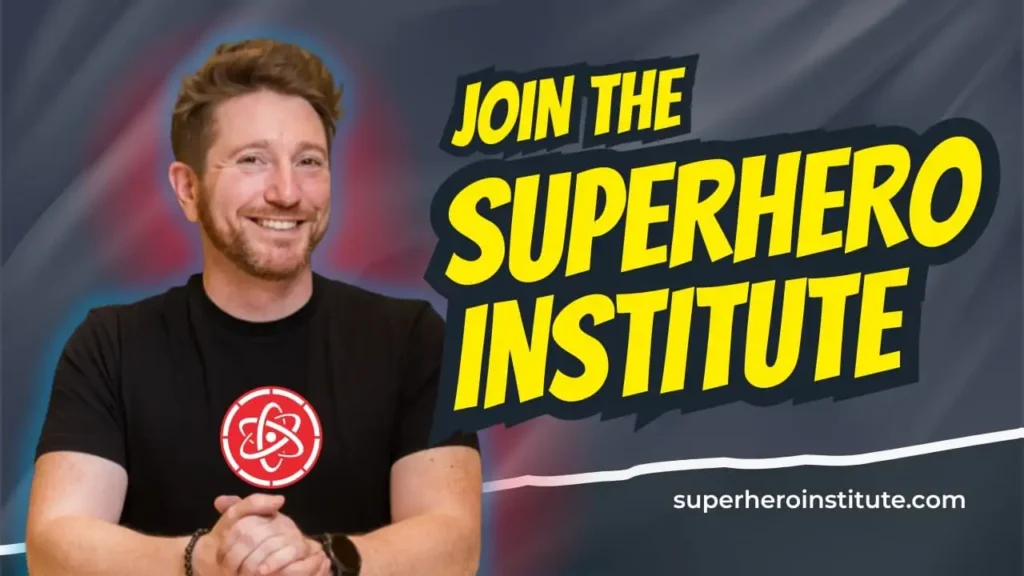The N.E.R.D Method for Growth
Who are we, really?
✉️ Get the Infinite Impact
Join thousands getting weekly wisdom on unlocking hidden potential, building meta-abilities, and creating meaningful change through practical frameworks you can use immediately.
I was great at math
When I was much younger I was really good at math. I was in all the accelerated classes.
Then, my family moved to a new town and I started junior high school.
All of a sudden, I wasn’t good at math anymore. I was in all of the normal classes, and I wasn’t exactly crushing it. This continued all throughout college and even all throughout my MBA. I needed help in every accounting, finance, economics, or statistics class.
I was bad at math.
After starting my agency, I had to quickly learn how to run a business.
I had to learn about budgeting, cash flow, and return on investment. I had to learn about the price of materials, the price of labor, and the value on my time. Because we ran ads on social media, I had to learn the basics of data analysis so we could assess the effectiveness of an advertising campaign.
I started building out complex models that included targets for numerical metrics and creating dashboards to calculate ROAS based on cost per click and click-through rates.
Before I knew it…
I was really good at math again.
So, what changed?
Only two things changed.
- The story I was telling myself at the time
- The importance of math at that time in my life
The story is a proprietary blend. It included all the messages I was gleaning from the people, experiences, and culture I was immersed in and paying attention to. All of those factors have changed over time.
This is not to say that I’m now a math genius. I’m not. I’m just better than the story I was telling myself. A willingness to change the stories we believe about ourselves can go a long way, especially if we’re patient and self-compassionate.
Effort -vs- Achievement
I think another critical factors that stop us from fulfilling our potential and becoming superhuman, are the values we internalize from a culture that places so much more emphasis on achievement over effort. Because of that, many of us are reluctant to take on things or even make tiny changes unless we can be the best or get everything right. We often don’t even make the initial effort.
Instead of setting our sights on better in the future, we want to be the best now.
We are impatient.
One of the ways we protect ourselves and avoid discomfort, is to discount or deny the importance of whatever change we seek to make. Either that, or to adopt a nihilistic posture, suggesting that any improvement would be meaningless anyway.
This saves us from failure, it saves us from embarrassment, and it saves us from being wrong. It robs us of growth.
The N.E.R.D. Method

Committing to change can be hard.
Here’s something that might help whether you’re trying to get better at math, learning to be a better leader, or being a better ally in the fight against racism, white supremacy, gender discrimination, or more…
I call it the N.E.R.D Method…
- Examine and update the Narrative. What is the story you have about yourself and open up the possibility of being completely off-base. Ignore all of the evidence you’ve already collected and start fresh. Belief is a powerful thing.
- Focus on the Effort, not an achievement. Take your time, make a plan, trust the process.
- Identify your Reason for making the change. If you have a sufficiently good reason for doing something, you’re more likely to stick with it.
- Lean into the Discomfort to make sure you are pushing yourself to grow.
Keep pushing forward knowing that after you inevitably fail to get it perfect or worse, get it wrong, that the power of your commitment to radical self-forgiveness will fortify your resilience.
This way, you can get back up, apologize if you’ve harmed someone, and keep moving toward better.
Embrace the Inevitable
Time will pass. Events beyond our control will happen. We will make mistakes.
The conditions of change are this: Whether we want to or not, change will happen.
I realize that this is not a profound statement. No, I am not auditioning to write fortune cookies or horoscopes. However, the reminder is important in the context of a commitment to becoming superhuman. Knowing that change is inevitable is one thing, knowing how to master that process is another.
Amidst the inevitability of change, the wise decision is to be curious, and learn how we can navigate the change in a way that is productive, repeatable, and aimed at creating a safer, kinder and more equitable world.
I hope you enjoyed this post!
If you liked this post, then you will LOVE my newsletter (The Infinite Impact)
and my learning community (The Superhero Institute).




